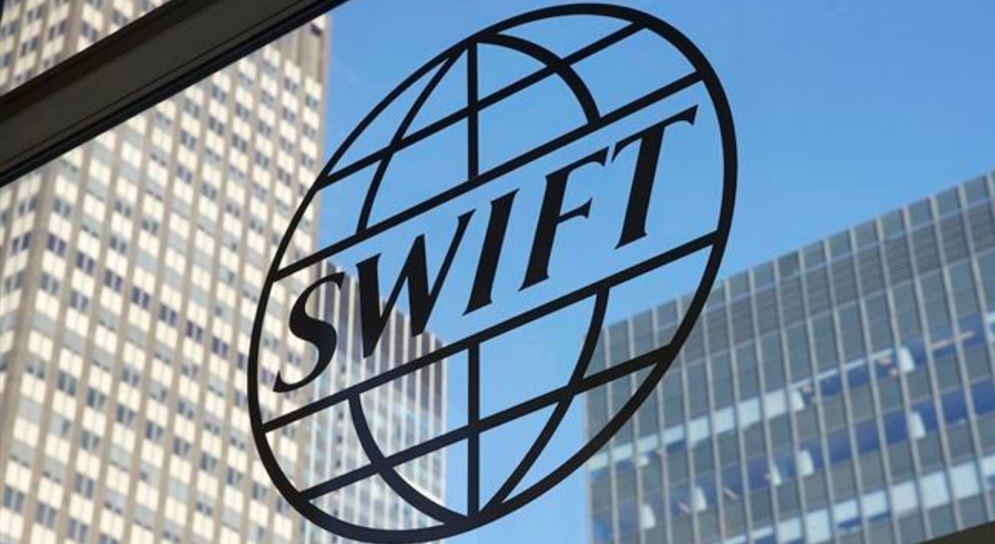Washington's aggressive policy of sanctions makes it highly necessary for Brussels to find working solutions to protect European countries against the US' unpredictable steps, top German economist and professor Max Otte says.
"The US has put a lot pressure on various issues and it has used the sanctions weapon and the economics weapon ever more aggressively even against the European companies, against Swiss companies, and this has put a lot of tensions on European companies, especially since the financial crisis," the economist and independent investment manager told RT.
"This is too much, we have to go our own way, and we have to strike a new balance, so that might be the turning point right now, but we will only see with hindsight," Otte said.
Earlier this week, European Union foreign affairs chief Federica Mogherini said the remaining signatories to the Iran nuclear deal – the UK, France, Germany, Russia, China, and the EU – cooperated to create a new "special purpose vehicle" (SPV) to do business with the Islamic Republic without sending money through SWIFT, the global financial clearinghouse.
The step follows US President Donald Trump's controversial decision to withdraw from the nuclear agreement and re-introduce sanctions against Tehran. Washington also threatened secondary sanctions on countries and corporations for doing business with Iran.
"Of course, Europe is stuck between rock and a hard place. On the one hand, it's the loyalty to the US, and on the other hand, it's the loyalty to the treaties and to nuclear de-proliferation and non-proliferation, and it's really choice that Trump has put the Europeans in," the analyst said.
"It's pretty amazing that such an idea is being floated."
So far, a whole host of European majors, such as Daimler, Peugeot, Renault, Volvo, Volkswagen, Adidas, Siemens, and Total, have left the ventures opened in Iran shortly after the decades-long economic sanctions were lifted.
"There's been a lot of economic warfare in the past 10 years, and it has hurt a lot of companies and a lot of countries. And this might be just turning point, because it's too much. We don't know what we will see afterwards," Otte said.
"The pressure on German diesel cars coming from the US which would benefit US car industry, the pressure on Swiss banks, the pressure on many other industries, Russian sanctions, which mostly hurt Germany and Austria on the Western side," he added.
The economist stressed that the White House has not hesitated to impose massive sanctions over the past 10 years that have had a direct or indirect impact on most of the country's allies. According to Otte, Brussels has to find its own way.
"This might just be the turning point. Washington could impose more sanctions but the allies, probably, or some allies, say this is enough, we can't bear any more, and we supported sanctions long enough. We have to find our own way," he said, adding that the measure will help create a more multilateral approach.
The EU-backed SPV, which could reportedly be available to other international partners, has evoked a fierce reaction from US officials. White House National Security Adviser John Bolton dismissed the plan and pressed the SWIFT global payments messaging system to rethink dealing with Tehran.
According to Bolton, Washington does "not intend to allow sanctions to be evaded by Europe or anybody else."
US Secretary of State Mike Pompeo said he was "disturbed and indeed deeply disappointed" by the EU's announcement. "By sustaining revenues to the regime, you are solidifying Iran's ranking as the number-one state sponsor of terror," he warned.
"It's pretty amazing that even such an announcement is coming out and Mike Pompeo has come out that he was deeply disappointed, and that Europe might not be following through [and may well be] but his disappointment was in strong language," Otte said.
The analyst highlighted the importance of breaking the SWIFT monopoly.
"I think it's highly necessary because of course the German authorities report all passenger data to the US and there's a grip of on European data by the US," Otte said. "But we have to see if Germany and the others follow through, because this is a long shot."
Source: Russia Today



























